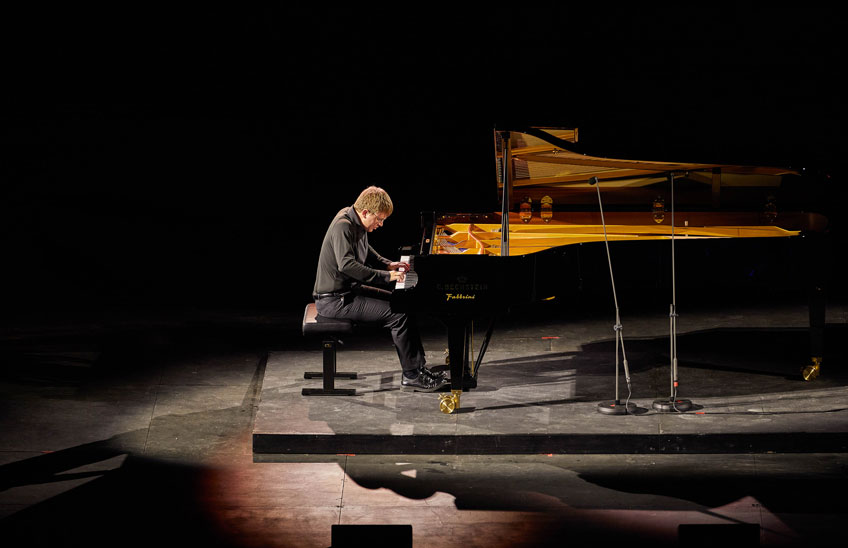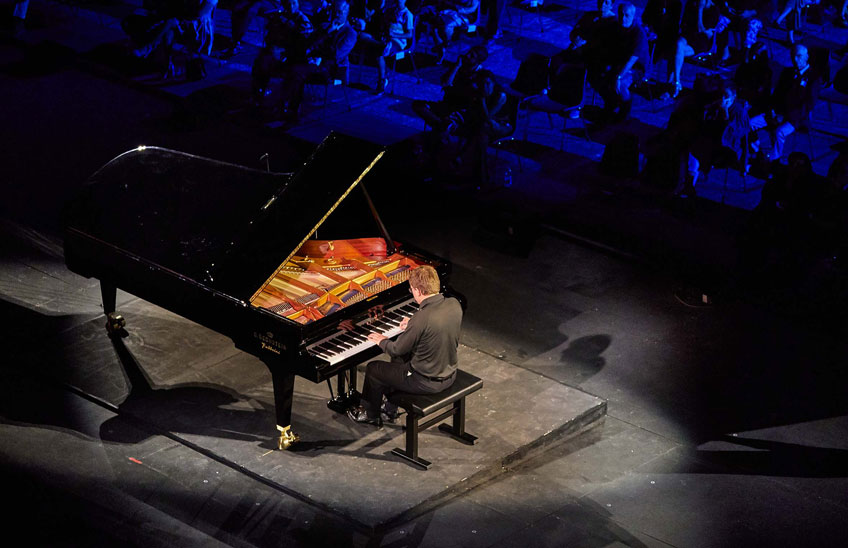© Zani-Casadio
Tribute to Beethoven
Filippo Gorini piano
Franz Schubert
Sonata in G major, Op.78, D 894 Fantasie
Ludwig van Beethoven
Sonata no. 32 in C minor, Op. 111
In the common imagination, Beethoven’s stern face somehow contrasts with the melancholy, enigmatic and disarming portrait that emerges from the enchanting first bars of the Arietta in Op. 111, the last of an unmatched corpus of 32 piano sonatas. This corpus was an inescapable and cumbersome legacy for Schubert—so much so that his op. 78, published in the year of Beethoven’s death, 1827, was sometimes considered as written under the Bonn composer’s influence. Instead, Schumann was right in remarking that its “heavenly lengths” were no compositional weakness, but rather the key to the power of “the most perfect sonata in form and in substance”. Our guide through early 19th-century Vienna and into the heart of Beethoven’s ineffable art is a most promising young pianist, Filippo Gorini: his staggering career has largely been devoted to Beethoven, with a début disc featuring the legendary Diabelli Variations, and a Telekom-Beethoven prize obtained in Bonn at the age of twenty. More recent recognition came a few months ago, when Mitsuko Uchida called him to tell him he was the winner of the Borletti-Buitoni Trust Award. In the meantime, Filippo continues his studies under Alfred Brendel.






